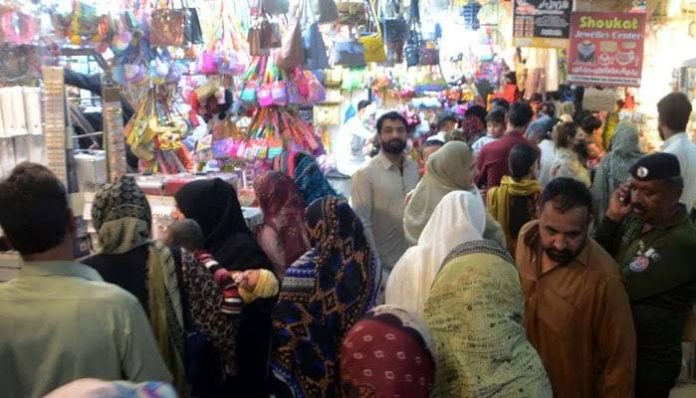The soaring inflation rates in Pakistan have had a profound impact on the purchasing power of its citizens, particularly during festive occasions like Eid. The All Karachi Tajir Ittehad (AKTI) reported a significant decline in Eidul Fitr sales, especially in Karachi, the country’s financial hub. Chairman Atiq Mir noted that retail sales in Karachi dropped by a staggering 70% compared to previous years, resulting in total earnings of only Rs18 billion during Ramadan 2024.
Several factors contribute to this decline. Firstly, inflation has surged, leading to higher prices for essential goods and commodities. This, coupled with the worsening law and order situation in Karachi, has instilled hesitancy among people to spend on Eid festivities. Even affluent individuals have been forced to adjust their spending habits due to the increased cost of living.
Moreover, cities like Lahore, Islamabad, and Faisalabad, catering to middle and lower-middle-class populations, have also witnessed a decrease in customer footfall in markets and shopping centers. The broader economic slowdown faced by Pakistan exacerbates these challenges, indicating systemic issues within the economy.
Addressing these issues requires a multifaceted approach, including measures to curb inflation, improve law and order, and stimulate economic growth. Without concerted efforts to address these underlying issues, Pakistan’s economy risks further deterioration, impacting the livelihoods and well-being of its citizens, especially during festive seasons like Eid.


